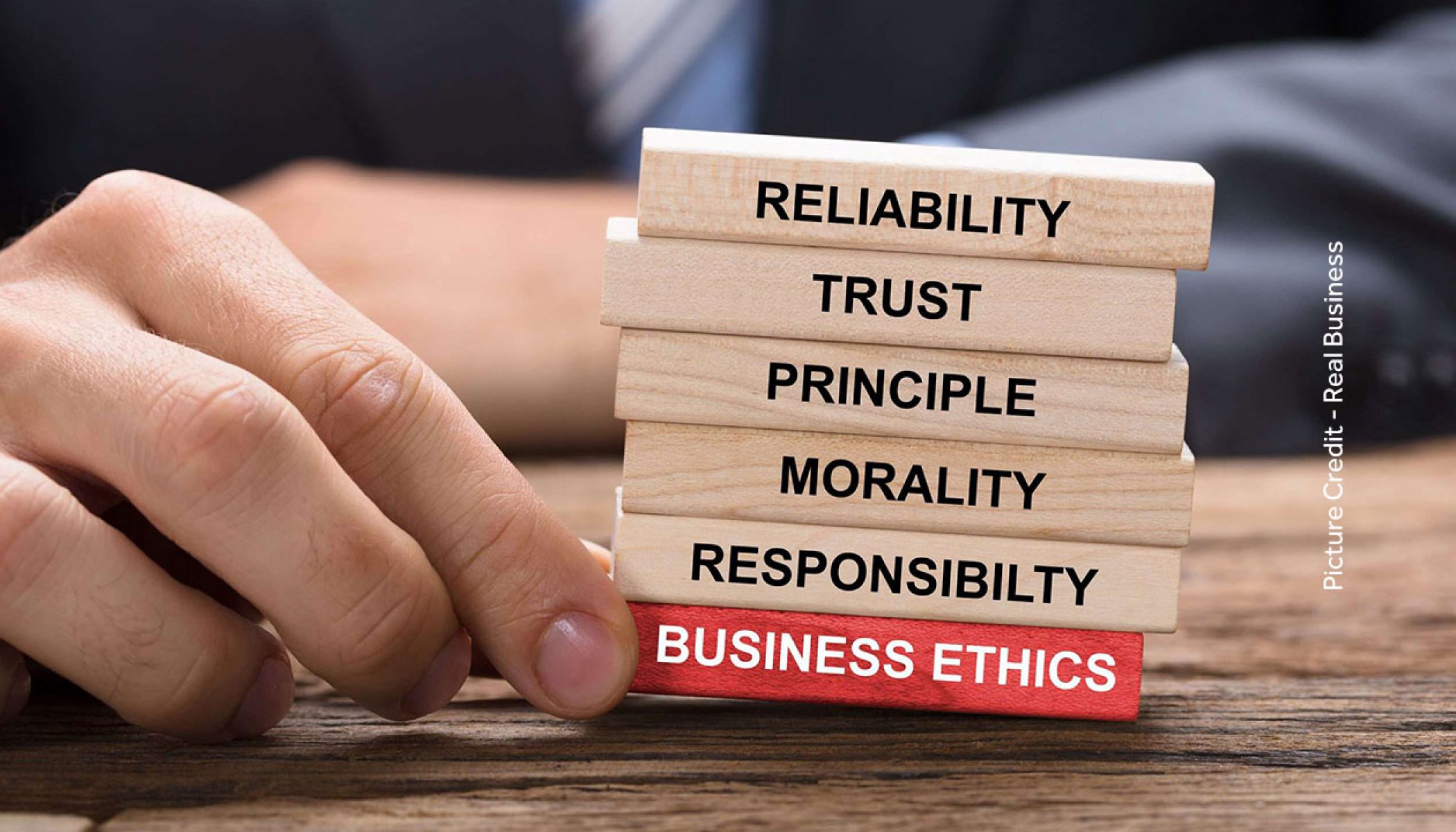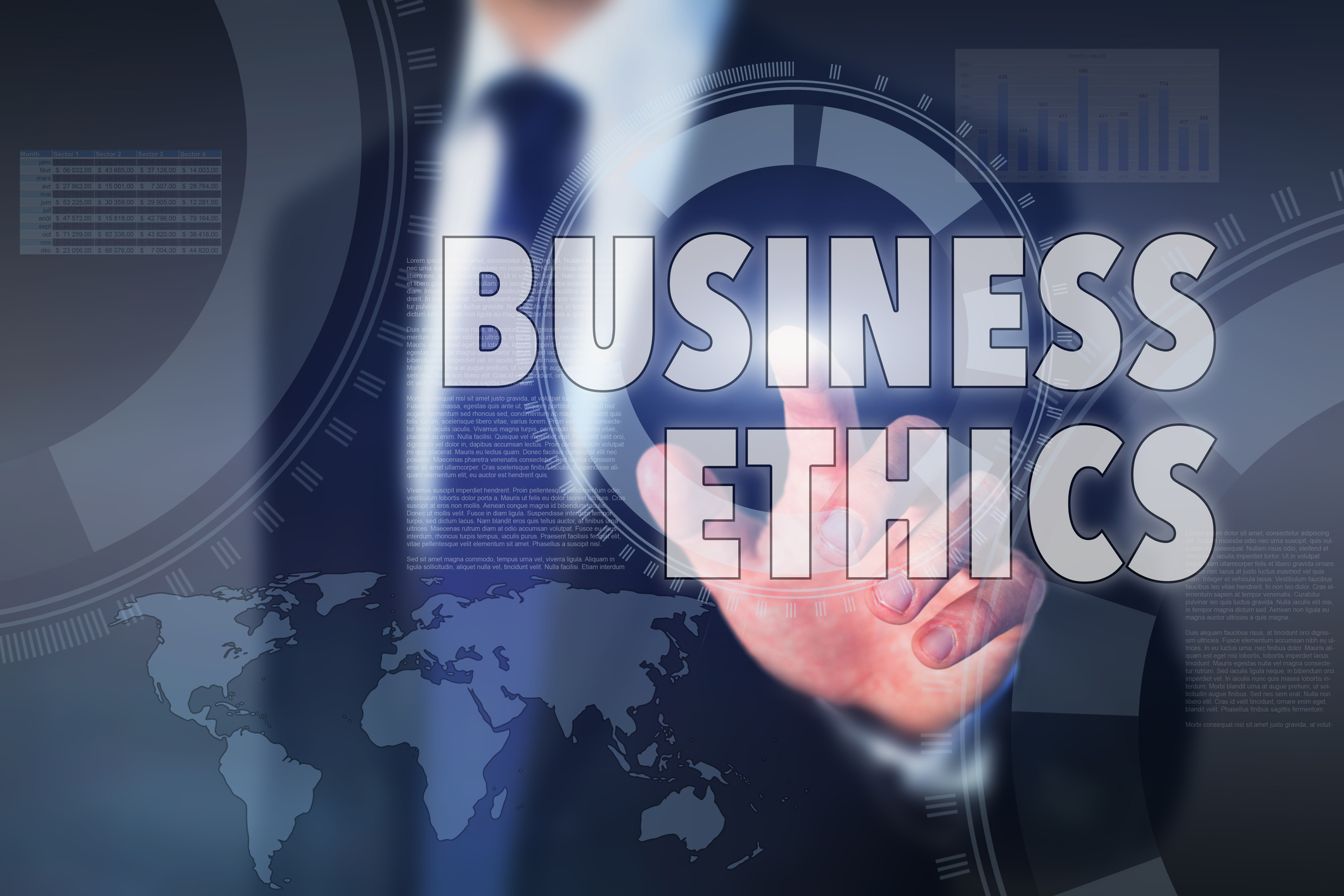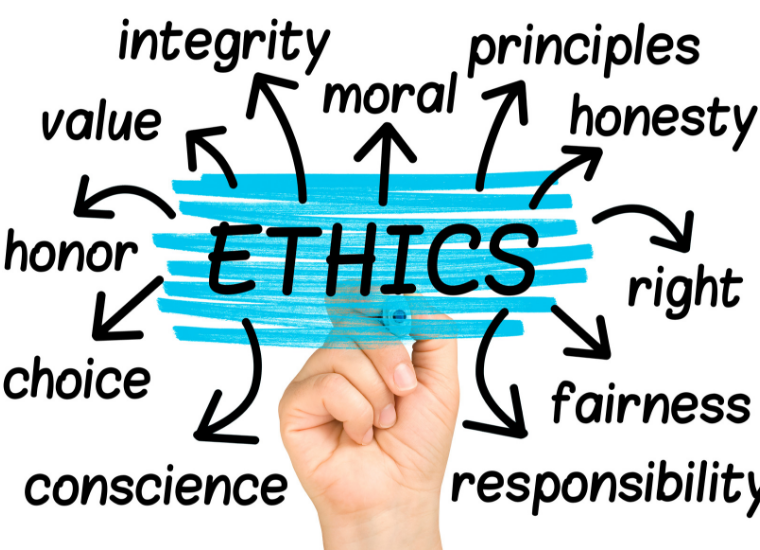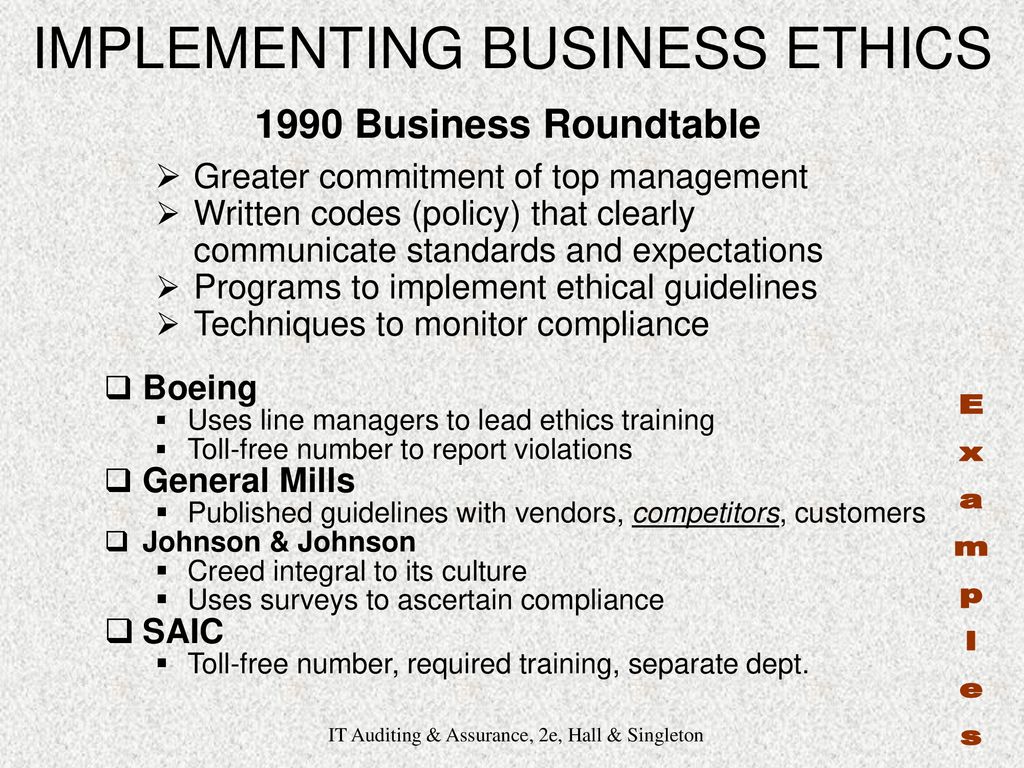Business Ethics: Definition And Its Importance
In today’s rapidly evolving and complex business landscape, the significance of ethical conduct cannot be overstated. It has become a paramount consideration for organizations that strive to achieve sustainable success and maintain a positive reputation. Business ethics serves as a guiding framework, consisting of a set of principles and values that steer companies towards making responsible decisions and conducting their operations with unwavering integrity.
In this enlightening article, we embark on a journey to unravel the multifaceted concept of business ethics. We will start by delving into its precise definition, shedding light on its various dimensions and implications. From there, we will dive into the profound importance of embracing ethical practices in the modern business world, exploring how it fosters trust, enhances reputation, and cultivates long-term relationships with stakeholders.
Preview of the Article’s Key Sections
In the upcoming sections of this article, we will delve deeper into various aspects of business ethics, exploring real-world examples, strategies, and frameworks. Here’s a preview of what you can expect:
- Understanding Business Ethics: This section will provide a comprehensive understanding of business ethics, including its definition, historical evolution, key principles, and ethical decision-making frameworks.
- The Significance of Business Ethics: We will explore in detail the importance of business ethics, highlighting its impact on trust-building, reputation, customer loyalty, talent attraction, legal compliance, risk mitigation, and gaining a competitive advantage.
- Ethical Issues in Business: This section will address common ethical challenges faced by businesses across different areas, such as workplace fairness, corporate social responsibility, marketing ethics, supply chain ethics, financial ethics, intellectual property rights, and emerging technology.
- Implementing Business Ethics: Here, we will delve into practical strategies and approaches for implementing business ethics within organizations, including developing a code of ethics, fostering an ethical culture, training, and education, whistleblowing, and the role of ethical leadership.
- Ethical Dilemmas and Resolutions: This section will examine real-life ethical dilemmas encountered by businesses, presenting case studies and discussing effective approaches to resolve these dilemmas while maintaining ethical integrity.
In the following sections, we will provide valuable insights, actionable advice, and thought-provoking examples to help businesses navigate the complex landscape of business ethics and integrate ethical practices into their operations.
Understanding Business Ethics

Business ethics is a fundamental aspect of conducting business in a responsible and morally upright manner. This section aims to provide a comprehensive understanding of business ethics, its application in the corporate world, its historical evolution, key principles and theories, and ethical decision-making frameworks. By delving into these topics, readers will gain a solid foundation for comprehending the significance of business ethics in today’s business landscape.
Definition of Business Ethics
Business ethics refers to the moral principles and values that govern the behavior and actions of individuals and organizations within the context of business. It involves making decisions and conducting business operations in a manner that is fair, honest, transparent, and respectful of various stakeholders, including employees, customers, shareholders, suppliers, and the wider community. It goes beyond mere compliance with laws and regulations, focusing on ethical considerations and the promotion of social responsibility.
Defining Ethics and Its Application in Business
- Ethics refers to a set of moral principles that guide human behavior and determine what is right or wrong. In the context of business, ethics encompasses the application of these principles to guide the conduct, decisions, and actions of individuals and organizations.
- Businesses are expected to go beyond legal compliance and operate with a sense of responsibility and integrity, considering the interests and well-being of various stakeholders.
Historical Evolution of Business Ethics
- The concept of business ethics has evolved over time, influenced by societal changes, economic factors, and increased awareness of social issues.
- In the 1960s, businesses started recognizing the importance of considering societal concerns such as environmental impact, social responsibility, and consumer rights.
- Since then, business ethics has become an integral part of corporate culture, driven by the growing demand for transparency, accountability, and ethical behavior.
Key Principles and Theories in Business Ethics
- Utilitarianism: This ethical theory suggests that the right action is the one that maximizes overall happiness or utility for the greatest number of people.
- Deontology: Deontological ethics focuses on duty and moral obligations. It suggests that certain actions are inherently right or wrong, regardless of their consequences.
- Virtue Ethics: Virtue ethics emphasizes the development of moral character and personal virtues to guide ethical decision-making.
- Stakeholder Theory: This theory asserts that businesses should consider the interests of all stakeholders, including employees, customers, shareholders, suppliers, and the community when making decisions.
Ethical Decision-Making Frameworks
- Kohlberg’s Stages of Moral Development: Lawrence Kohlberg proposed a six-stage model that describes the moral development of individuals, ranging from pre-conventional (self-interest) to post-conventional (principled ethics) stages.
- The Ethical Triangle: The ethical triangle, also known as the fraud triangle, identifies three key elements that contribute to unethical behavior: opportunity, rationalization, and pressure. Understanding and addressing these elements can help mitigate unethical conduct.
By exploring these aspects of understanding business ethics, readers will gain valuable insights into the foundations, theories, and frameworks that shape ethical decision-making in the business realm.
The Importance of Business Ethics

Business ethics plays a crucial role in the success and sustainability of modern businesses. This section highlights the significance of business ethics in various aspects, including building trust with stakeholders, enhancing reputation and brand image, fostering employee morale and productivity, gaining a competitive advantage, ensuring legal and regulatory compliance, mitigating risks, and avoiding costly consequences.
Building Trust and Credibility with Stakeholders
- Business ethics establishes a foundation of trust between businesses and their stakeholders, including customers, investors, employees, suppliers, and the wider community.
- Ethical behavior demonstrates a commitment to honesty, integrity, and fair practices, which fosters trust and credibility. It assures stakeholders that their interests and well-being are valued.
Enhancing Reputation and Brand Image
- Ethical conduct contributes to the development of a positive reputation and a strong brand image.
- Businesses that prioritize ethics are more likely to be perceived as trustworthy, reliable, and socially responsible, which enhances their reputation among customers, investors, and the general public.
Fostering Employee Morale and Productivity
- A strong ethical culture within an organization cultivates an environment where employees feel valued, respected, and motivated.
- Ethical practices promote employee morale, job satisfaction, and loyalty, leading to increased productivity and a positive work atmosphere.
Gaining a Competitive Advantage in the Market
- Businesses that uphold high ethical standards often differentiate themselves from competitors.
- Customers are increasingly conscious of ethical practices and prefer to support businesses that align with their values. This preference can give ethically-minded companies a competitive edge in the market.
Legal and Regulatory Compliance
- Adhering to business ethics ensures that organizations operate within the bounds of laws and regulations.
- Compliance with legal requirements not only mitigates legal risks but also maintains the trust and confidence of stakeholders, including customers, shareholders, and regulatory bodies.
Mitigating Risks and Avoiding Costly Consequences
- Unethical behavior can lead to significant risks and detrimental consequences for businesses.
- By prioritizing business ethics, organizations can proactively identify and mitigate risks, avoiding costly consequences such as lawsuits, fines, reputational damage, and loss of customer trust.
In summary, business ethics is of paramount importance for building trust, enhancing reputation, fostering a positive work environment, gaining a competitive advantage, ensuring compliance, and mitigating risks. Embracing ethical practices not only leads to long-term success but also contributes to the overall well-being and sustainability of businesses.
Ethical Issues in Business

Ethical issues play a critical role in the functioning and reputation of businesses. This section explores several key ethical issues that businesses commonly encounter, including fairness and equality in the workplace, corporate social responsibility (CSR) and sustainable practices, ethical considerations in marketing and advertising, supply chain ethics and responsible sourcing, financial ethics and transparency, intellectual property rights, and plagiarism, and ethical implications of emerging technologies.
Fairness and Equality in the Workplace
- Fairness and equality in the workplace are crucial ethical considerations. Businesses need to promote diversity, inclusion, and equal opportunities for all employees, irrespective of their race, gender, age, religion, or other characteristics.
- Ethical issues related to fairness and equality include pay equity, unbiased hiring and promotion practices, providing a safe and inclusive work environment, and addressing any form of discrimination or harassment.
Corporate Social Responsibility (CSR) and Sustainable Practices
- Corporate social responsibility entails businesses taking responsibility for their impact on society, the environment, and various stakeholders.
- Ethical considerations in CSR include philanthropy, environmental sustainability, ethical sourcing, community engagement, and promoting social causes.
- Sustainable practices involve minimizing negative environmental impacts, conserving resources, and adopting renewable energy sources.
Ethical Considerations in Marketing and Advertising
- Ethical marketing and advertising practices involve promoting products and services honestly, without misleading or deceiving consumers.
- Ethical issues in marketing and advertising include avoiding false or exaggerated claims, respecting consumer privacy, ensuring advertising is not offensive or harmful, and promoting responsible consumption.
Supply Chain Ethics and Responsible Sourcing
- Supply chain ethics focus on ensuring ethical practices throughout the supply chain, including sourcing materials, manufacturing, and distribution.
- Ethical considerations include fair trade, labor rights, avoiding child labor, ensuring safe working conditions, responsible sourcing of raw materials, and reducing the environmental impact of the supply chain.
Financial Ethics and Transparency
- Financial ethics involves maintaining high standards of honesty, integrity, and transparency in financial dealings.
- Ethical considerations include avoiding fraud, insider trading, embezzlement, and misleading financial reporting.
- Transparency in financial practices ensures accurate and timely disclosure of financial information to stakeholders.
Intellectual Property Rights and Plagiarism
- Ethical issues arise concerning intellectual property rights, such as patents, trademarks, and copyrights.
- Respecting intellectual property rights involves not infringing on the intellectual creations of others and avoiding plagiarism or unauthorized use of someone else’s work.
Ethical Implications of Emerging Technologies
- Emerging technologies, such as artificial intelligence (AI), big data, and automation, raise ethical considerations.
- Ethical issues include data privacy and protection, algorithmic bias, responsible AI development and deployment, and ensuring technology is used ethically and responsibly.
In summary, businesses face various ethical issues in their operations. Addressing these issues is essential for maintaining trust with stakeholders, upholding moral values, and avoiding negative consequences. By prioritizing fairness and equality, embracing corporate social responsibility, adhering to ethical marketing practices, ensuring responsible sourcing, maintaining financial ethics and transparency, respecting intellectual property rights, and considering the ethical implications of emerging technologies, businesses can contribute to a more ethical and sustainable business environment.
Implementing Business Ethics

Implementing business ethics requires a proactive approach to fostering an ethical culture within an organization. This section explores key strategies and practices for implementing business ethics, including developing a code of ethics and ethical policies, creating an ethical culture, providing training and education on ethical behavior, encouraging whistleblowing, and promoting ethical leadership and role modeling.
Developing a Code of Ethics and Ethical Policies
Developing a code of ethics is a fundamental step in establishing ethical guidelines for an organization. A code of ethics outlines the values, principles, and standards that employees should adhere to in their professional conduct. It provides a framework for ethical decision-making and behavior.
Key considerations when developing a code of ethics and ethical policies include:
- Reflecting organizational values: The code of ethics should align with the organization’s mission, vision, and core values. It should clearly articulate the ethical standards expected from employees.
- Addressing specific ethical issues: The code of ethics should cover a range of ethical issues relevant to the organization’s industry, such as conflicts of interest, confidentiality, honesty, fairness, respect, and responsible use of resources.
- Providing practical guidance: The code of ethics should provide practical examples and scenarios to help employees understand how ethical principles apply in their day-to-day work.
- Regular review and updates: The code of ethics should be regularly reviewed and updated to ensure its relevance and effectiveness in addressing evolving ethical challenges.
Creating an Ethical Culture within the Organization
Developing an ethical culture is essential for embedding ethical behavior into the fabric of an organization. An ethical culture promotes values such as integrity, transparency, accountability, and fairness. It sets the tone for ethical conduct throughout the organization.
Key practices for creating an ethical culture include:
- Leading by example: Ethical behavior starts at the top. Leaders should demonstrate and uphold ethical values in their actions and decision-making. They should serve as role models for ethical conduct.
- Communication and reinforcement: Regular communication about the importance of ethics, ethical expectations, and ethical successes can reinforce the organization’s commitment to ethical behavior. Recognizing and rewarding ethical behavior also reinforces the desired values.
- Employee involvement: Involving employees in discussions and decision-making processes related to ethics can foster a sense of ownership and commitment to ethical practices. Encouraging open dialogue and providing channels for feedback can help identify and address ethical concerns.
Training and Education on Ethical Behavior
Training and education programs play a crucial role in building employees’ awareness and understanding of ethical behavior. Such programs help employees recognize ethical dilemmas, develop ethical decision-making skills, and understand the organization’s code of ethics and ethical policies.
Key elements of effective training and education on ethical behavior include:
- Ethics training modules: Designing interactive and engaging training modules that cover key ethical principles, provide practical examples, and encourage active participation.
- Case studies and discussions: Using real-life case studies and scenarios to stimulate ethical discussions and help employees apply ethical principles to their work.
- Ethical decision-making frameworks: Introducing ethical decision-making frameworks, such as the use of ethical principles, considering stakeholder perspectives, and evaluating potential consequences.
- Ongoing reinforcement: Providing periodic refresher training and incorporating ethical discussions into regular team meetings and performance evaluations to ensure continuous reinforcement of ethical behavior.
Encouraging Whistleblowing and Reporting Unethical Behavior
Creating an environment where employees feel comfortable reporting unethical behavior is crucial for early detection and prevention of misconduct. Encouraging whistleblowing and providing mechanisms for reporting unethical behavior without fear of retaliation is essential.
Key practices for encouraging whistleblowing and reporting unethical behavior include:
- Anonymous reporting channels: Implementing anonymous reporting channels, such as a whistleblower hotline or an online reporting system, to protect the confidentiality of whistleblowers.
- Non-retaliation policies: Establishing clear policies that explicitly state that individuals who report unethical behavior will not face retaliation or adverse consequences as a result of their reporting.
- Investigation and follow-up: Ensuring that reported incidents are promptly and thoroughly investigated, and appropriate actions are taken to address unethical behavior.
Ethical Leadership and Role Modeling
Ethical leadership sets the tone for ethical behavior within an organization. Leaders should exemplify ethical values and demonstrate integrity, transparency, and accountability in their actions. Ethical leadership inspires trust, fosters ethical decision-making, and influences the ethical culture of the organization.
Key practices for promoting ethical leadership and role modeling include:
- Leadership training: Providing leadership development programs that emphasize ethical leadership principles and behaviors.
- Clear expectations: Clearly communicating ethical expectations to leaders and holding them accountable for their behavior.
- Mentorship and coaching: Pairing emerging leaders with experienced ethical leaders who can serve as mentors and provide guidance on ethical decision-making.
- Regular self-assessment: Encouraging leaders to regularly reflect on their own behavior and seek feedback to ensure alignment with ethical values.
In summary, implementing business ethics requires a multifaceted approach that encompasses developing a code of ethics, creating an ethical culture, providing training and education, encouraging whistleblowing, and promoting ethical leadership and role modeling. By taking these steps, organizations can foster a culture of ethics and integrity, establish trust with stakeholders, and mitigate ethical risks.
Ethical Dilemmas and Resolutions

Ethical dilemmas are complex situations that require businesses to make difficult decisions when faced with conflicting moral principles. This section explores common ethical dilemmas faced by businesses, presents case studies to illustrate ethical challenges and their resolutions, discusses strategies for addressing ethical dilemmas effectively, and highlights the importance of seeking guidance from ethics committees and professional associations.
Common Ethical Dilemmas Faced by Businesses
- Conflicts of interest: Businesses often encounter situations where individuals have competing interests that could compromise their objectivity or create bias. For example, a purchasing manager receives kickbacks from suppliers in exchange for favorable treatment.
- Workplace discrimination: Organizations may face ethical dilemmas related to discrimination based on factors such as race, gender, age, or disability. For instance, a manager refuses to promote a qualified employee due to personal biases.
- Environmental responsibility: Businesses must navigate dilemmas related to environmental impact, such as choosing between cost-saving practices and sustainable initiatives. An example is a manufacturing company deciding whether to invest in eco-friendly technology or continue with environmentally harmful processes.
- Product safety and quality: Ethical dilemmas can arise when businesses face decisions regarding the safety and quality of their products. For instance, a pharmaceutical company discovers potential risks associated with a drug and decides whether to recall it.
- Whistleblowing and confidentiality: Employees may encounter situations where they witness unethical behavior or illegal activities within the organization. They face the dilemma of whether to report the misconduct, potentially risking their job security and reputation.
Case Studies Illustrating Ethical Challenges and Their Resolutions
- Conflict of interest resolution: A company implements strict policies requiring employees to disclose any potential conflicts of interest. In cases where conflicts arise, individuals are recused from decision-making processes or assigned alternative roles to avoid compromising the integrity of the organization.
- Discrimination resolution: An organization establishes diversity and inclusion training programs, implements fair hiring and promotion practices, and enforces strict policies against discriminatory behavior. This fosters a culture of equality and ensures that decisions are based on merit rather than personal biases.
- Environmental responsibility resolution: A company invests in research and development to develop sustainable practices and technologies. It adopts environmentally friendly manufacturing processes, reduces waste and emissions, and educates employees about the importance of environmental conservation.
- Product safety and quality resolution: A pharmaceutical company discovers potential risks associated with a drug during clinical trials. In an ethical response, the company recalls the drug from the market, conducts further research to address the safety concerns, and transparently communicates with healthcare professionals and patients about the issue.
- Whistleblowing and confidentiality resolution: An organization establishes anonymous reporting mechanisms, such as a whistleblower hotline or an online reporting system, to protect employees who witness misconduct. It ensures a non-retaliation policy and conducts thorough investigations into reported incidents, taking appropriate actions to address the unethical behavior.
Strategies for Addressing Ethical Dilemmas Effectively
- Establish ethical guidelines: Develop clear policies and codes of ethics that address potential ethical dilemmas and provide guidance for employees on how to navigate them.
- Ethical decision-making frameworks: Implement decision-making frameworks that encourage critical analysis of ethical dilemmas, considering factors such as stakeholders’ interests, consequences, and ethical principles.
- Communication and training: Foster open communication channels and provide ongoing ethics training to employees, empowering them to recognize and address ethical dilemmas effectively.
- Consultation and collaboration: Encourage employees to seek guidance and collaborate with colleagues, managers, or ethics committees to discuss and resolve ethical dilemmas in a collective and transparent manner.
- Continuous improvement: Regularly review and update ethical policies and practices to adapt to changing circumstances and emerging ethical challenges.
Seeking Guidance from Ethics Committees and Professional Associations
Ethics committees and professional associations can provide valuable guidance and resources to address ethical dilemmas. These bodies offer expertise, standards, and best practices specific to industries or professional fields. Engaging with them can help businesses navigate complex ethical situations and ensure compliance with industry-specific ethical standards.
Businesses should consider the following steps:
- Identify relevant ethics committees and professional associations within the industry.
- Seek guidance from these organizations when facing complex ethical dilemmas.
- Participate in industry events, workshops, and training programs organized by ethics committees and professional associations to stay updated on ethical practices and connect with peers.
- Incorporate industry-specific ethical standards into the organization’s code of ethics and policies.
By actively engaging with ethics committees and professional associations, businesses can access a network of expertise and best practices to resolve ethical challenges effectively.
Conclusion
Business ethics is essential for long-term success and sustainability. Prioritizing ethical conduct brings numerous benefits:
- Enhanced brand recognition and growth through loyal customers who value integrity and social responsibility.
- Competitive advantage in attracting talented employees who seek ethical organizations.
- Increased trust in products and services, leading to customer preference over competitors.
- The attraction of investors aligned with socially responsible practices, securing funding and partnerships.
To achieve these advantages, businesses must prioritize ethical practices by implementing strong codes of ethics, fostering integrity-driven cultures, and regularly improving guidelines. By embracing business ethics, organizations contribute to a sustainable and responsible business environment, driving their own success while benefiting society and the environment.
